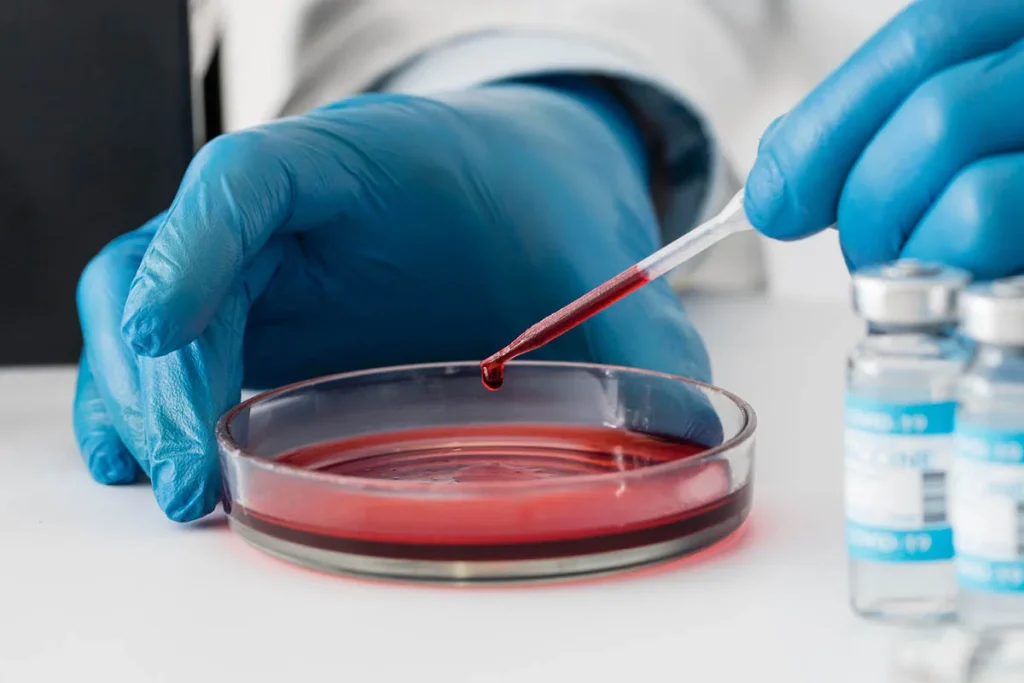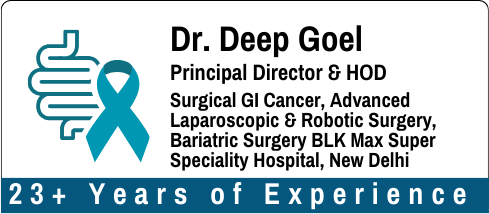How Stem Cell Therapy is Changing GI Cancer Care?

Gastrointestinal (GI) cancers, affecting the stomach, colon, liver, pancreas, and oesophagus, are some of the most widespread and life-threatening cancers around the world. While treatments like surgery, chemotherapy, and radiation are commonly used, they often come with side effects and don’t always work well, especially when the cancer is diagnosed at a later stage.
In recent years, there’s been growing excitement around a new and more targeted approach: stem cell therapy for gastrointestinal cancer. Stem cells are showing potential to actively fight cancer, repair damaged tissues, and even reduce some of the harsh side effects of traditional treatments.
In this blog, we’ll explore how stem cells are being used in GI cancer care, the latest breakthroughs in this area, and whether stem cell therapy could play a bigger role in how we treat cancer in the future.
What Are Stem Cells and How Do They Work in Cancer Treatment?
Stem cells are unlike any other cells in the body; they can multiply and transform into many different types of cells. As a result, they play a crucial role in healing and recovery. In cancer care, especially for gastrointestinal (GI) cancers, stem cell therapy is gaining attention for the unique ways it can support patients.
There are two main ways stem cells are being used to help treat GI cancers:
- Helping the Body Recover: After harsh treatments like chemotherapy or radiation, stem cells can help the body bounce back by rebuilding bone marrow and boosting the immune system.
- Fighting Cancer More Directly: Some stem cells can be trained to carry medicine straight to the tumour, repair damaged tissues, or change the environment around the cancer to slow its growth.
These uses are making stem cells an exciting part of cancer care, offering new hope for better results with fewer side effects.
“In advanced stomach cancer cases, stem cells allow us to go beyond tumour removal. They support healing, immunity, and targeted therapy, all at once,” says Dr. Deep Goel.
How Stem Cells Are Used to Treat GI Cancers
GI cancers, including stomach, colon, and pancreatic cancers, can be aggressive and hard to manage. Stem cell therapy is now being explored for multiple purposes in these cancers.
How stem cells treat stomach cancer:
- Targeted Drug Delivery: Mesenchymal stem cells (MSCs) can be modified to carry anti-cancer drugs directly to the tumour, reducing damage to healthy tissues.
- Tissue Repair: Stem cells help heal and regenerate the stomach lining damaged by chemotherapy or radiation.
- Boosting the Immune System: Certain stem cells can enhance the immune response, enabling the body to recognise and overcome cancer cells.
- Minimising Side Effects: Since stem cell therapy focuses directly on the tumour, it can lead to fewer side effects compared to standard treatment methods.
- Supporting Recovery: Stem cells can help patients recover more quickly by repairing healthy cells damaged during cancer treatment.
These approaches not only help patients recover more effectively but also reduce the side effects typically associated with conventional treatments.
How Stem Cell Therapy Works in Colon Cancer Treatment:
- Targets the Root of Cancer: This therapy aims to remove colon cancer stem cells, which are thought to be responsible for the tumour’s growth and chances of coming back.
- Direct Drug Delivery: Specialised stem cells, such as mesenchymal stem cells (MSCs), can be used to deliver chemotherapy drugs directly to the cancer site, thereby protecting healthy tissues.
- Gene Therapy Support: Some treatments also combine stem cells with advanced gene-editing techniques, such as CRISPR, to enhance the body’s ability to fight cancer.
Preliminary results from early trials show that this method could support quicker recovery and lower the chances of the cancer coming back.
A patient of Dr. Deep Goel shared, “After multiple rounds of chemotherapy, I was exhausted and losing hope. Dr. Deep Goel recommended stem cell-supported therapy, and within weeks, I felt stronger and more like myself. The care was truly holistic.”
Another patient shared, “I travelled from the UAE after my diagnosis with pancreatic cancer. I had lost hope until I met Dr. Deep Goel. He introduced me to a treatment plan that included stem cell-supported therapy. It helped me tolerate chemo better and regain strength faster than expected. I’m so glad I decided to come here.”
Is Stem Cell Therapy Effective for GI Cancer?
Although stem cell therapy is still being studied, early research and trials show encouraging signs. For example:
- Patients who received stem cell support after chemotherapy recovered faster and had fewer side effects.
- Tests using stem cells to carry cancer-fighting drugs have helped shrink tumours in lab animals.
- Some human trials have shown better quality of life and slower cancer growth.
Still, stem cell therapy is usually combined with other treatments and is not yet a complete cure on its own.
Latest Advancements in Stem Cell Therapy for Cancer
Stem cell therapy for gastrointestinal cancer is advancing quickly, bringing new hope to patients. Recent developments in this area include:
- Induced pluripotent stem cells: Induced pluripotent stem cells (iPSCs) are regular adult cells that scientists turn into stem cells. These are now being tested in labs to develop personalised treatments for GI cancer.
- Stem cell-derived exosomes: Tiny vesicles from stem cells carry therapeutic molecules and are being explored as drug carriers.
- CAR-T and stem cell hybrids: Combining the precision of CAR-T cell therapy with the regenerative potential of stem cells is an emerging area of research.
“We’re now exploring how engineered stem cells can carry smart therapies right to the tumour site, reducing the collateral damage of traditional treatments,” says Dr. Deep Goel.
Challenges and Ethical Considerations
Despite its promise, stem cell therapy for GI cancer faces challenges:
- Cost and accessibility: These treatments are expensive and not widely available.
- Approval challenges: Many stem cell treatments are still being tested in clinical trials and haven’t yet received full regulatory approval for widespread use.
- Ethical concerns: Especially around embryonic stem cell use, though alternatives like iPSCs are addressing this.
Final Thoughts
Stem cell therapy is a new and hopeful way to treat gastrointestinal (GI) cancers. While it’s still being studied, it may help make treatment work better and cause fewer side effects. Stem cells can help deliver cancer drugs directly to tumours, repair damaged tissues, and strengthen the immune system, creating new possibilities in how we fight cancer.
As research grows, patients may soon benefit from more personalised and gentle treatments. If you or a loved one is exploring GI cancer care, speaking to a doctor familiar with the latest stem cell therapies is a smart first step.
FAQs
1. Is stem cell therapy painful?
No, the procedure itself is not painful. Some discomfort may occur if cells are collected from the bone marrow, but it’s manageable.
2. How long does stem cell therapy take?
Stem cell therapy typically takes between 3 days to 3 weeks, depending on the type of treatment and the individual’s medical condition.
3. Is recovery faster with stem cell therapy?
Yes, many patients recover faster, especially after chemotherapy or radiation, as stem cells help rebuild damaged tissues.
4. Do I need a donor for stem cell therapy?
Not always. Some treatments use your stem cells (autologous), while others may use donor cells, depending on your condition.
5. Can stem cell therapy prevent cancer from coming back?
It may lower the risk of recurrence by targeting hidden cancer cells, but it’s not a guaranteed prevention method.
Explore more blogs: What Are the Latest Advancements in GI Cancer Treatment?

